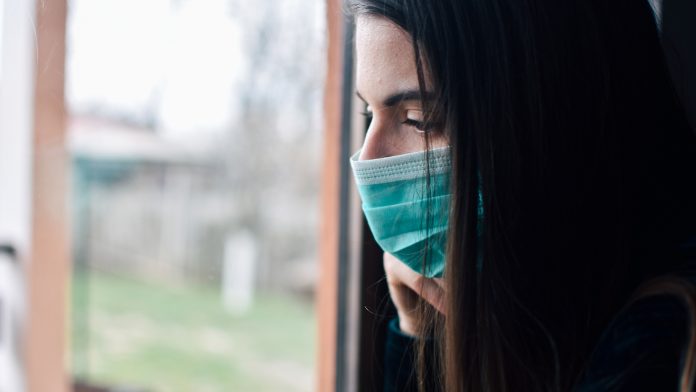
Novel research suggests that people who contract a COVID-19 infection are at an elevated risk of developing a range of mental illnesses.
The study, published by The BMJ, indicts a plethora of health concerns far beyond the primary COVID-19 infection, finding that the chances of developing mental illnesses, such as anxiety, depression, substance use, and sleep disorders, are significantly exacerbated for up to one year following the initial infection.
The research highlights the vital importance of providing support to COVID-19 survivors to mitigate the development of mental illnesses. Previous investigations had identified that COVID-19 might increase the risk of anxiety and depression; however, they only included a small selection of mental health outcomes and only tracked participants for a maximum of six months.
Mental-wellbeing after COVID-19
The team performed the most extensive study of mental health manifestations in COVID-19 patients to date, employing data from the US Department of Veterans Affairs national healthcare databases. They quantified the risks of mental illnesses in people who survived the disease for at least 30 days after a positive PCR test between March 2020 and January 2021.
The team located data from 153,848 individuals, matching them to two control groups without COVID-19: 5,637,840 contemporary controls and 5,859,251 historical controls who predated the pandemic. The participants were predominantly white men with an average age of 63 years. Subsequently, the team divided the COVID-19 group into people who were admitted to the hospital and those who were not during the acute phase of infection, collating information on potentially influential factors including age, race, sex, lifestyle, and medical history.
The three groups were then followed for one year to estimate the risk of specified mental illnesses, including anxiety, depression and stress disorders, substance use disorders, neurocognitive decline, and sleep disorders.
Impacts on mental illnesses
The results showed that people with COVID-19 displayed a 60% higher risk of any mental health diagnosis or prescription at one year compared to the non-infected control group – the equivalent of 64 per 1,000 people. Furthermore, when separately analysing mental illnesses, they identified that COVID-19 was associated with an additional 24 per 1,000 people with sleep disorders at one year, 15 per 1,000 with depressive disorders, 11 per 1,000 with neurocognitive decline, and 4 per 1,000 with any (non-opioid) substance use disorders.
The team found similar results when contrasting the COVID-19 group with the historical control group. Mental health risks were highest in people admitted to the hospital during the acute phase of COVID-19 but were also apparent in people not admitted to hospital. Moreover, COVID-19 patients showed a higher risk of mental illnesses than people with seasonal influenza and people admitted to hospital due to the disease had a higher chance than those admitted for any other reason.
A cause cannot be established as this is an observational study, and the team states that some misclassification bias may have occurred. Additionally, the study mainly included older white men, so the results may not apply to other groups.
Scott Weich, a professor of mental health at the University of Sheffield, commented: “We now have a clearer picture of the mental health impacts of the COVID-19 pandemic. Taking stock, it could be argued that much of the research concerned with the mental health impacts of COVID-19 represents more hindsight than insight. We now need to focus on advancing our understanding of the causes of mental ill-health or undertaking research that evaluates treatments for mental disorders more generally.”






















